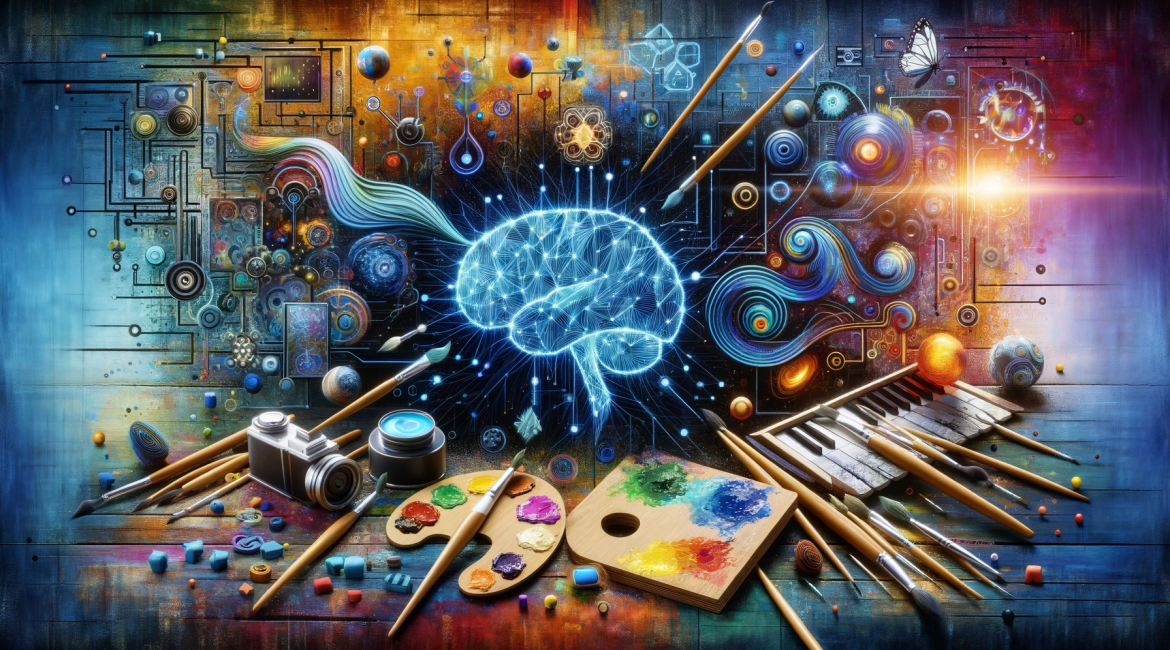Introduction
In the ever-evolving tapestry of technology, Artificial Intelligence (AI) has embroidered its presence in the realm of art and design, blurring the lines between digital precision and human creativity. This fusion is not just a mere collaboration; it is a revolution, a dance of digits and brushes, pixels and palettes, where algorithms become the new tools for artistic expression and design innovation.
AI as the Artist’s Ally
Historically, artists have always explored new mediums – from cave walls to canvas, and now, digital screens. AI in art is less about replacing human creativity and more about augmenting it. The article would explore how artists use AI algorithms to create intricate patterns, surreal landscapes, and even explore abstract expressions that were previously unthinkable. It could feature examples of AI tools like DeepDream and GANs (Generative Adversarial Networks), which have opened new avenues for creative exploration.
The Authenticity Challenge
With AI’s ability to generate art, questions of authenticity and originality inevitably surface. Can an AI-generated piece hold the same emotional value as a stroke of a human artist? The article would delve into the ethical and philosophical debates surrounding AI art. It would discuss how artists are finding a balance, ensuring that AI is a tool for expression rather than an autonomous creator, thus preserving the human essence that lies at the core of all art.
AI in Design: A New Architect
Beyond traditional art, AI’s influence extends into the design domain. From algorithm-driven fashion collections to AI-assisted architectural designs, the technology is reshaping how we envision and create functional aesthetics. The article would highlight groundbreaking projects, like AI’s role in sustainable architecture, where it helps design energy-efficient buildings, or in fashion, where AI algorithms predict style trends and assist in fabric design.
The Future Canvas
As we look to the future, the interplay between AI and human creativity is bound to deepen. The article would speculate on the future possibilities – could AI help democratize art, making it more accessible to those without formal training? Could it lead to entirely new art forms or design languages? The possibilities are as endless as they are fascinating.
Conclusion
As AI continues to evolve, it challenges artists and designers to reimagine the boundaries of their craft. In this digital renaissance, the canvas is vast, and the palette is ever-expanding, inviting us to witness and partake in this extraordinary fusion of technology and human ingenuity.




